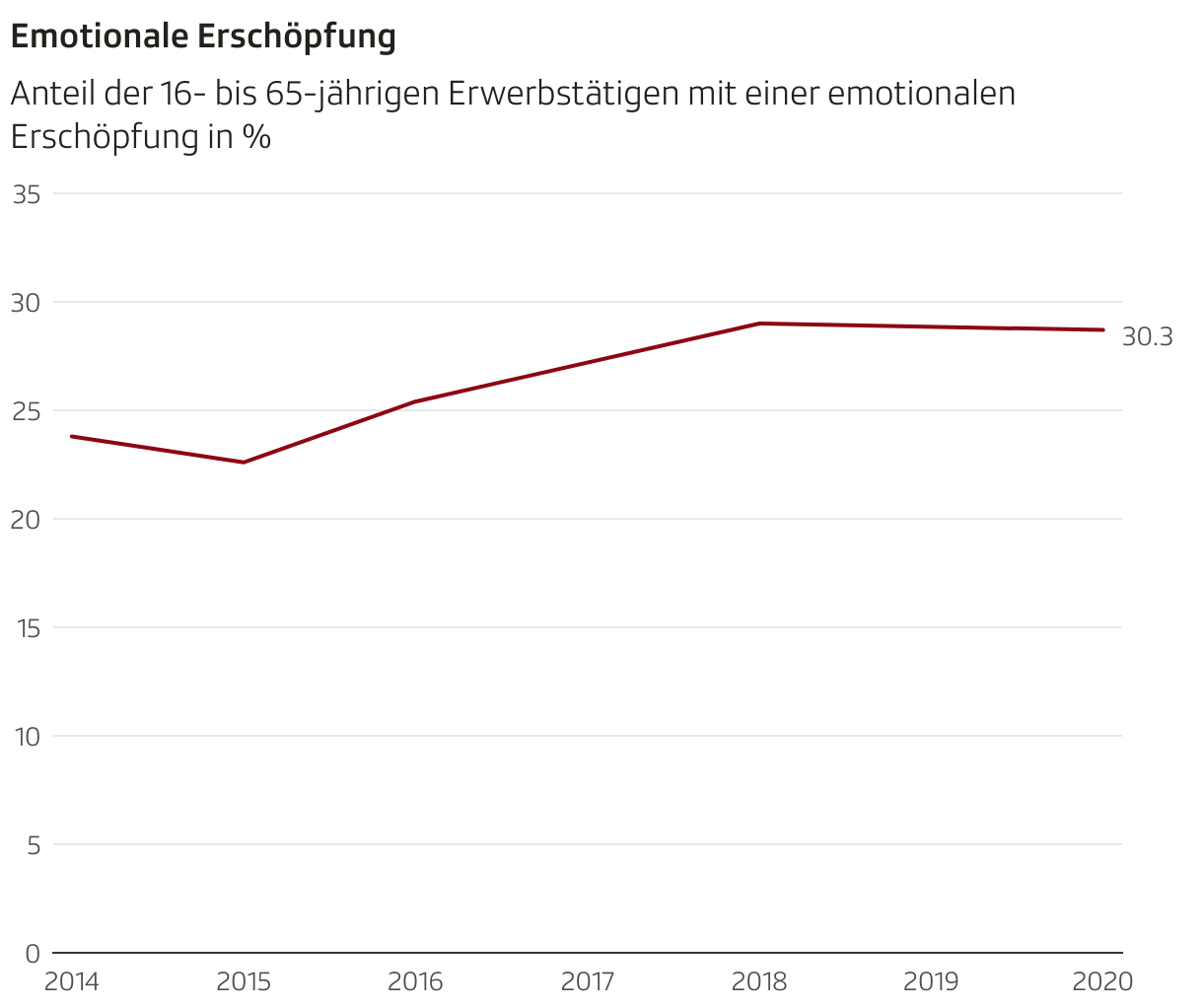Contents
A new SRG survey also shows that employees in this country are more resilient than elsewhere.
They feel empty, listless and no longer able to perform – people who suffer from burnout. Although burnout is not an official medical diagnosis, it is a widespread illness in Switzerland, as the new survey clearly shows: 17 percent of adults have experienced burnout and 25 percent of employees feel that they are at risk of burnout because of their work be.
Regina Jensen from Health Promotion Switzerland says that this should make you think: “Burnouts cause a lot of suffering for the people affected and for those around them.”
Expensive suffering
In addition, the overload costs employers around 6.5 billion francs annually because workers are absent or less productive. She did this together with colleagues from the University of Bern and the Zurich University of Applied Sciences calculated. The study also shows that more and more workers are emotionally exhausted, meaning they feel overstressed and drained. This means that more and more employees are at risk of burnout.
But why do more and more workers feel burned out? Jensen mentions the higher work intensity and the constant availability. In addition, more employees are absent due to illness and there is a shortage of skilled workers in many places, both of which increase the pressure on other employees.
When I am confronted with wars, natural disasters and pandemics, I lack coping options elsewhere to deal with stress at work.
The social context also plays a role, says the psychologist: “When I am confronted with wars, natural disasters and pandemics, I lack coping options elsewhere to deal with stress at work.”
Young women are particularly at risk
Not everyone is at equal risk: younger workers tend to have fewer resources to absorb stress than older people, and women have fewer resources than men.
A possible explanation for this is that young adults and especially young women are already under a lot of stress when it comes to starting a family, which makes them more vulnerable. In addition, people with low incomes suffer burnout more often than those with high incomes.
Working people in Switzerland are more resilient
Many workers in other European countries are also exhausted. But in Switzerland we work particularly hard – and at particularly high speeds and pressures, as a Europe-wide study shows. But it also shows that working people in Switzerland can cope well with the stress.
The wages are high in Switzerland because productivity is high, but of course the workload is correspondingly high.
Boris Zürcher from the State Secretariat for Economic Affairs Seco explains that you cannot look at the working conditions in isolation, but only the entire package: “The wages are high in Switzerland because productivity is high, but of course the burden is also corresponding.”
At the same time, the study also shows that employees in Switzerland could cope with the stress better than the European average. The former more often find their work meaningful, have the feeling that they can use their knowledge and skills and, above all, they are very satisfied with the pay.
However, Regina Jensen points out that in this European survey, a quarter also stated that they were overworked: “If we become aware of what this overload means for the long-term health of those affected, we have to act.” Even if we do better than other countries in Europe.
